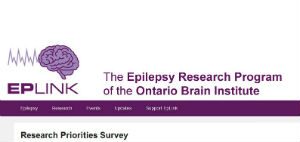By Deron Hamel
Epilepsy Ontario announced today that it has entered a partnership with EpLink to fund a  study to research the link between brain trauma and the development of epilepsy.
study to research the link between brain trauma and the development of epilepsy.
There is a body of evidence that shows people who suffer brain trauma are at increased risk of developing epilepsy. What is not known is why this happens. The study being undertaken by EpLink, Ontario Brain Institute’s Epilepsy Research Program, is aiming to solve this puzzle.
The study is being led by University of Western Ontario neurologist Dr. Jorge Burneo. With funding provided by Epilepsy Ontario through the William Donald Willis Fund, Burneo and his team will be creating a database of patients who developed epilepsy after sustaining brain trauma.
Using a type of state-of-the-art MRI technology called diffusion tensor imaging (DTI), Burneo and his research team will be able to examine brain mechanics with extreme precision.
DTI technology measures changes in water distribution within the brain at a molecular level. This helps to easier detect brain injuries not visible with an MRI, which only measures blood flow.
Allowing scientists to see where epilepsy forms in the brain at its earliest stages will help provide better treatment and long-term outcomes for people living with the condition, Burneo says.
“We want to see what kinds of epilepsy treatment (are) most responsive to various types of brain trauma,” Burneo says. “That way we can design better treatments for patients with brain trauma and maybe even prevent the onset of epilepsy.”
Epilepsy Ontario announced in July that for the first time in its 60-year history the organization will be funding research projects in partnership with EpLink and the Krembil Neuroscience Centre at Toronto Western Hospital.
A $400,000 donation to the organization by the William Donald Willis Fund will also be supporting research for the largest music therapy clinical trial ever conducted in Canada, as well as a first-of-its-kind study aimed at improving the long-term chances of success for brain surgery patients.
Paul Raymond, Epilepsy Ontario’s executive director, says the organization’s partnership with EpLink and the Krembil Neuroscience Centre is the start of a new era for Epilepsy Ontario.
“By partnering with some of Ontario’s leading epilepsy research centres, we can now contribute to the ground-breaking work being done in the lab to better understand the diagnosis and treatment for the almost 90,000 people with epilepsy in Ontario,” he says.
If you have feedback on this story, or have a story of your own that you would like to share, please contact the newsroom at 1-800-294-0051, ext. 23, or e-mail deron(at)axiomnews.com. You can also leave a comment below.





